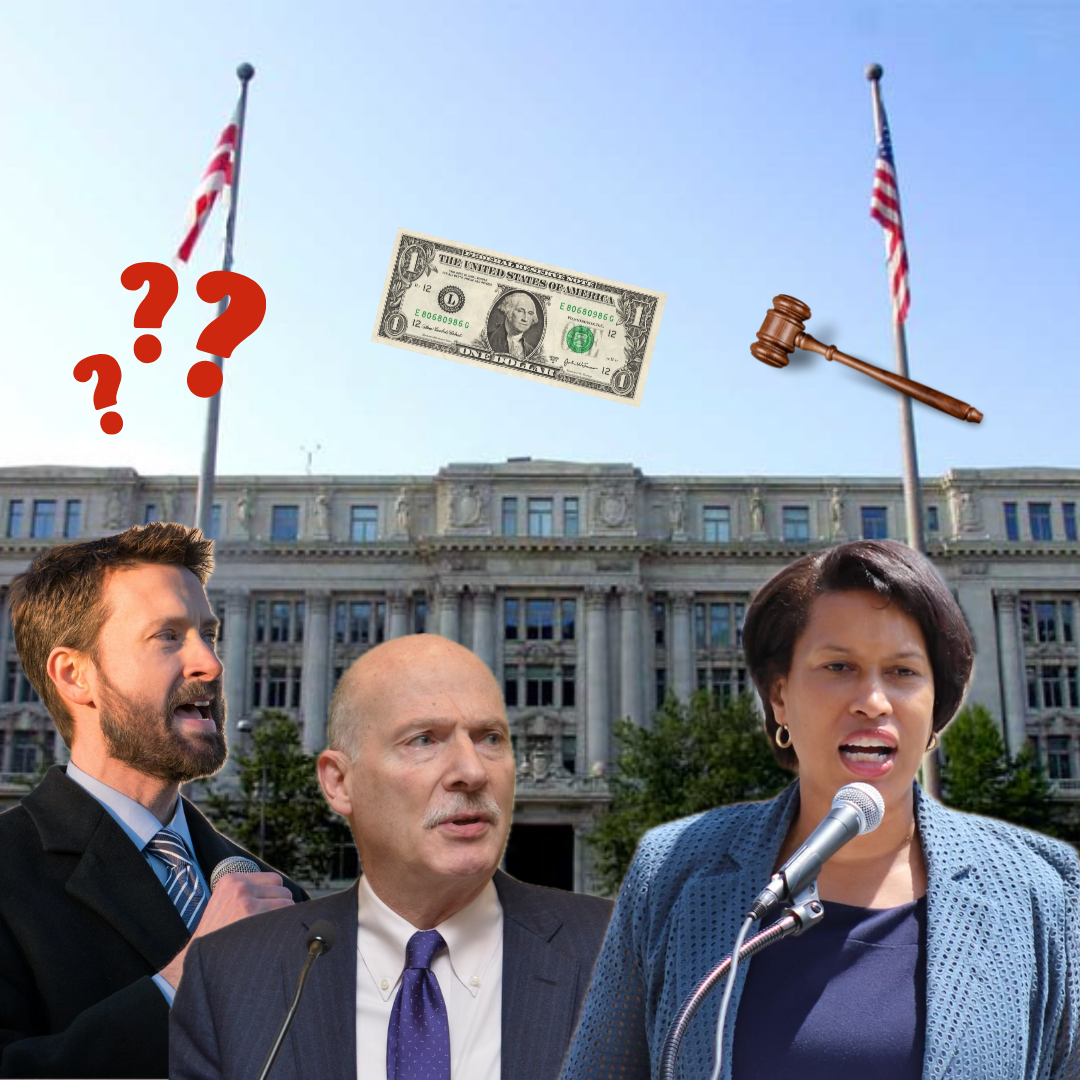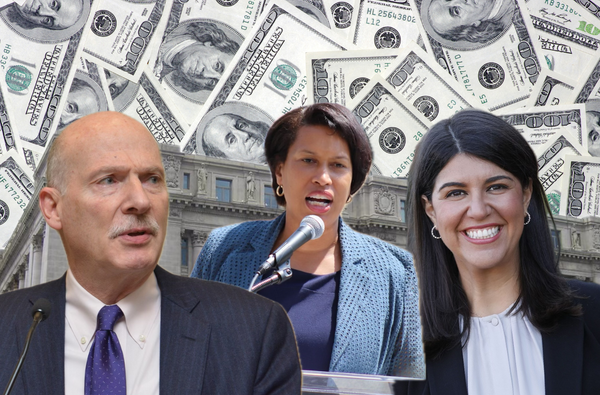Wilson Building Bulletin: A predictable start to 2025
For the most part, the CMs eased into the new legislative session...aside from a dispute with the mayor.

It was a quiet and largely predictable start to a new legislative session at the Wilson Building this week. The councilmembers, joined by the newest addition to the dais – Ward 7’s Wendell Felder — breezed through a slim, agreeable agenda in Tuesday’s meeting.
Of note:
The legislators extended rent-stabilization protections into 2025. This is a continuation of legislation penned in 2023, when record-high inflation levels resulted in lofty rent hikes for tenants in rent-stabilized apartments. Two years ago, the CMs passed a bill capping rent increases at 6%, with more aggressive limits for elderly and disabled renters. That original bill went into effect in July 2023 and was set to expire early this January, so Councilmember Robert White introduced an emergency amendment Tuesday to extend these protections through April of this year.
Also on Tuesday, councilmembers unanimously approved the collective bargaining agreement between the D.C. Public Schools system and the Washington Teachers Union, which represents more than 5,000 teachers employed by DCPS. The five-year contract includes wage increases over the next several years, expansions of dental and optical care benefits and paternity and maternity leave, and improvements to working conditions, like expanded planning time. “Most impressively, this deal was done within 10 months of active negotiations,” said At-large Councilmember Anita Bonds, commenting on what has historically been a years-long bargaining process. The WTU ratified the contract in the fall, so the council’s approval was the final step to put the agreement into effect.
And finally, the first legislative meeting of the new year wrapped with something of a storied tradition: a few swipes at the mayor. Also true to form, Tuesday’s discord between the legislative and the executive stemmed from a tedious misunderstanding of a bill that both parties had already passed and approved.
In 2022, the council passed the Climate Commitment Amendment Act, which prohibits D.C. from installing fossil-fuel-based heating appliances in buildings owned by the District. But according to Ward 6 Councilmember Charles Allen, the city’s Department of General Services (which oversees property owned or leased by the city) reached out shortly before the last council meeting of 2024 and said they can’t repair existing boiler systems — there are about 117 of them in D.C.’s school buildings — because the 2022 law prohibits repairs to fossil-fuel based heating.
Allen said this interpretation of the law is incorrect; it bans the installation, not repair, of new fossil-fuel-based heating.
Nonetheless, it’s now become a legal dispute between the council and the mayor’s office about whether the law allows certain repairs to move forward. Meanwhile, we’re in the coldest months of the year. Allen introduced an emergency amendment tweaking the language of the bill on a temporary basis to permit boiler replacement and repairs to move forward over the next few months, at which point he hopes to table those small changes.
“I do intend this emergency to truly be an interim solution while we settle on a shared interpretation of the Climate Commitment Act, and determine if permanent changes are necessary,” he said.
“I also know that many of my colleagues are skeptical about the executive's motivations for requesting this change,” he added. “The council has routinely been asked by the mayor to backtrack on the district's environmental and sustainability initiatives and goals… I think this body is getting tired of being asked to undo or water down the District's commitment.”
The next legislative meeting isn’t scheduled until early February, at which point we’ll likely be watching for Trayon White’s expulsion vote.
See you then.
This story has been updated to reflect that Robert White's emergency amendment extended rent control protections through April 2025.




